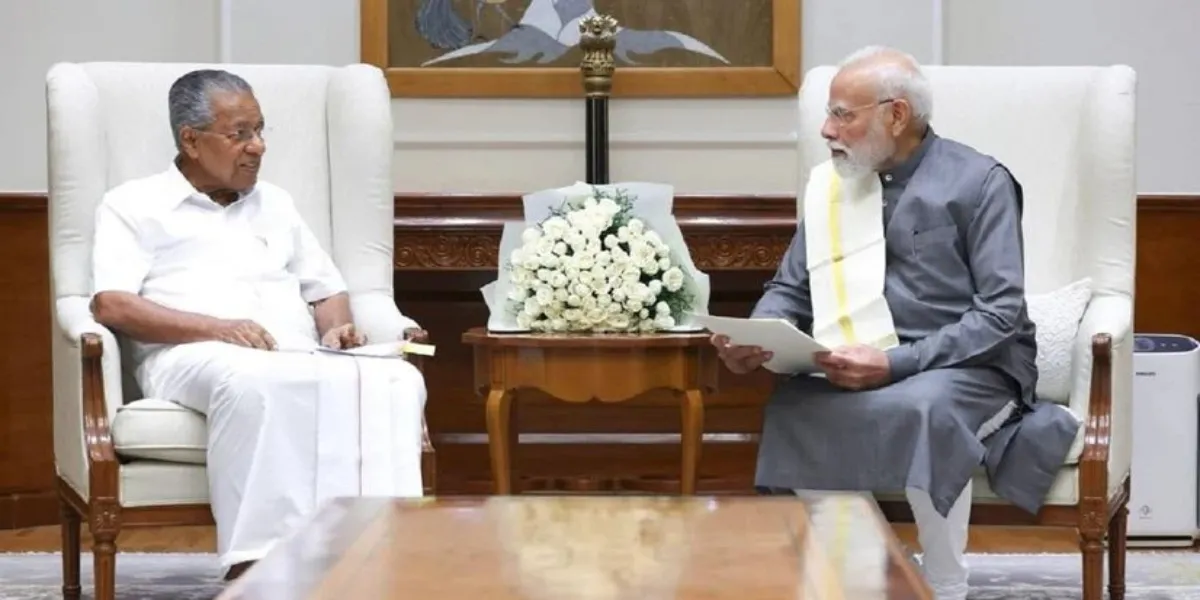

Jharkhand Forms Teams to Modernise Urban Infrastructure
The Jharkhand Urban Development Department has constituted multiple expert teams to plan, assess, and modernise urban infrastructure across the state’s cities and towns, an official said on Thursday. The initiative aligns with Chief Minister Hemant Soren’s vision to position Jharkhand among India’s leading states in the field of advanced and sustainable urban development. The teams have been tasked with identifying existing infrastructure gaps and proposing new projects to promote stable and long-term growth. According to Sunil Kumar, Principal Secretary of the Urban Development and Ho..

Kerala CM Seeks Rs 22 Billion NDRF Aid, AIIMS Nod from PM
Kerala Chief Minister Pinarayi Vijayan met Prime Minister Narendra Modi in New Delhi on Friday, seeking urgent financial and policy support for the state. The Chief Minister requested the release of the Rs 22.21 billion National Disaster Response Fund (NDRF) grant for Wayanad landslide reconstruction and pressed for immediate approval to establish an AIIMS at Kinaloor, Kozhikode. “Called on the Hon’ble Prime Minister Narendra Modi Ji and requested the urgent release of the full Rs 22.21 billion NDRF grant for Wayanad landslide reconstruction. Also urged immediate approval for establishing..

Meta Picks Mumbai, Vizag for Global Subsea Cable Project
Meta Platforms, the parent company of Facebook, Instagram, and WhatsApp, has selected Mumbai and Visakhapatnam as the landing sites for its multibillion-dollar subsea cable project, Waterworth. The company has appointed Sify Technologies as its landing partner in India under a USD 5 million (Rs 420 million) contract. Google has also partnered with Sify for the Indian landing of its USD 400 million (Rs 33.6 billion) Blue-Raman subsea cable, underscoring the surge in global investment into India’s digital infrastructure and its growing strategic significance in international data connectivity..
















